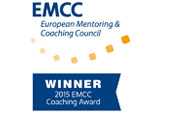15th February 2025
The CCA Community Festival starts on 6th March with some extraordinary sessions that run through March and April so far. All events are free. On Thursday 6th March, 0830-1000 GMT, you can hear from Professor Peter Hawkins on “Beauty in Leadership and Coaching: and its role in Transforming Human Consciousness,” the subject of his recently […]
Read More
24th March 2024
This is an opportunity opportunity to take part in a free, creative workshop Telling Stories: Empowering Change – Imagining Sustainability for Future Generations with special guest, the inspirational Denise Baden. It will be an interactive session, where Denise joins colleagues from APECS, APAC and EMCC Global to explore the power of storytelling in creating energy […]
Read More
16th February 2024
The Climate Coaching Alliance is hosting its 5th March Festival event March 6-9, and the line-up is extraordinary. There are opportunities for storytelling, hearing from one of the world’s extraordinary writers and speakers Meg Wheatley on creating islands of sanity, hearing from Jonathan Porritt on building communities of concern, there’s coaching from a boat travelling […]
Read More
27th October 2023
Have you registered for this important CEF event: ‘Ethics the heart of coaching: Expanding the boundaries of thinking and practice’ taking place on Friday 8th and Saturday 9th December? There will be two days of lively discussion on ethics, a subject which is part of every moment of our lives, and all for 50 Euros. […]
Read More
18th July 2021
The 3rd version of the Global Code of Ethics has just been published. While no code can ever cover every eventuality, and it is meant to sit alongside dialogue and reflection, it does provide some useful guidance in three key areas: Working with Clients (context, contracting, integrity, confidentiality, inappropriate interactions, conflict of interest, ending professional […]
Read More
21st October 2020
Nine professional bodies are co-hosting a unique series of six webinars called “Climate crisis – how can coaching help?” between 2 and 13 November. These webinars will consider the climate and ecological crisis and the role of coaching, coaching psychology, mentoring and supervision. You are welcome to register for whichever of the 6 fit your […]
Read More
 CCA Community Festival starts Thursday 6th March – with some exciting events
CCA Community Festival starts Thursday 6th March – with some exciting events


 Ethics Forum conference – 8 and 9 December, a must attend!
Ethics Forum conference – 8 and 9 December, a must attend!













